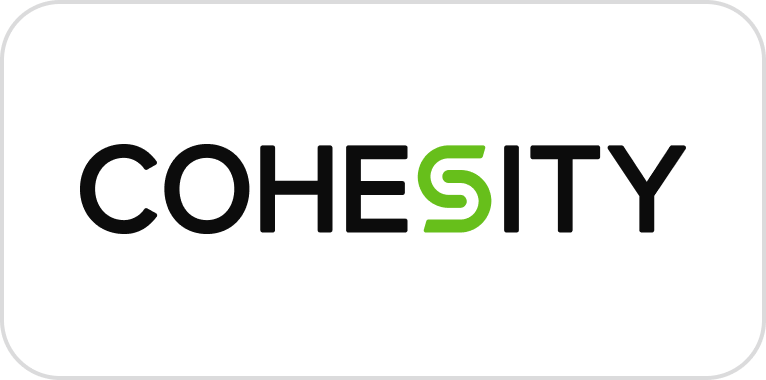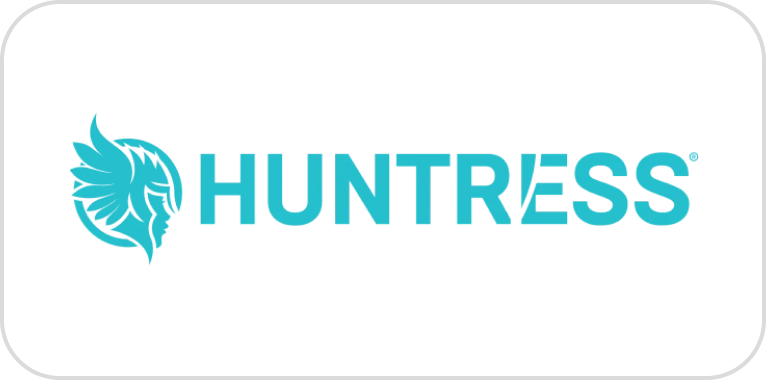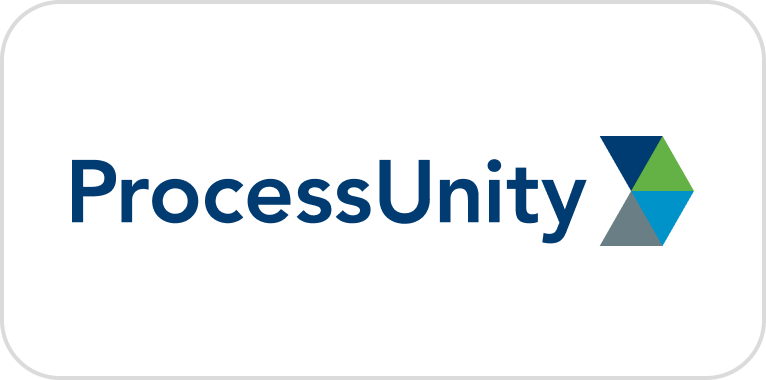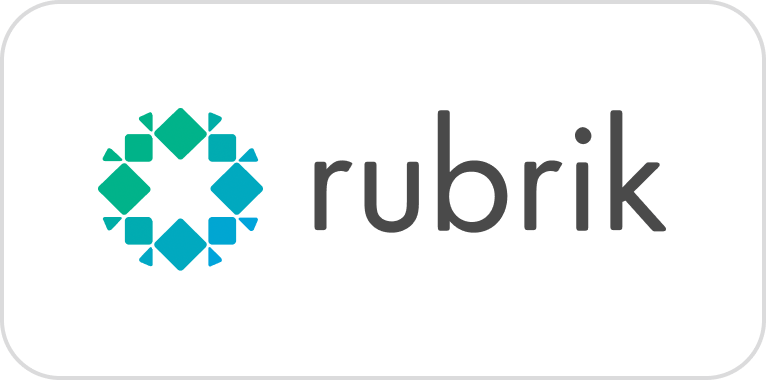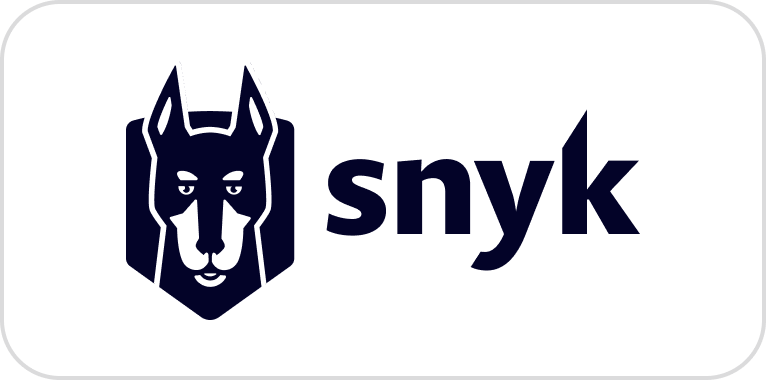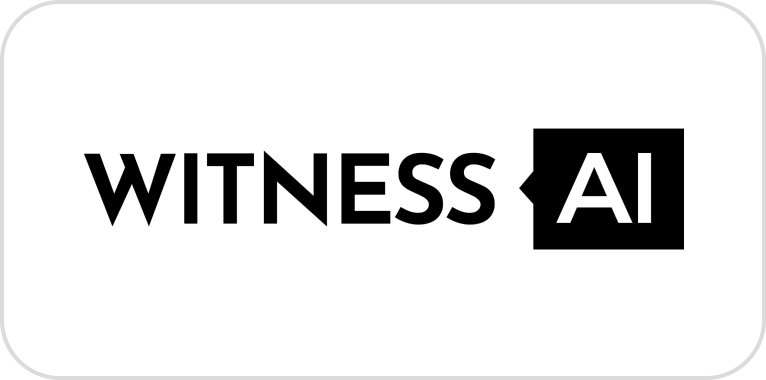Event Overview
ISMG’s Virtual Summit: Cybersecurity Implications of AI offers a dynamic exploration of the intersection between AI and cybersecurity, diving deep into ethical considerations, LLM security and the intricate impacts on privacy and intellectual property. Engage with industry leaders to uncover the synergy between human intelligence and AI in fortifying cybersecurity, with a particular focus on AI-driven threat detection and risk management strategies. The summit equips security professionals with vital AI insights, promoting transparent governance and hands-on application through sessions dedicated to real-world cybersecurity challenges. Expect a day packed with strategic dialogues, invaluable insights and collaborative exploration at the forefront of AI and cybersecurity.
Speakers
The Virtual AI Summit by ISMG delves into a dynamic exploration of the intersection between AI and cybersecurity. Take a deep dive into ethical considerations, LLM security, and the intricate impacts on privacy and intellectual property. Engage directly with industry leaders to uncover the synergy between human intelligence and AI in fortifying cybersecurity, with a special focus on AI-driven threat detection and risk management strategies. This summit equips security professionals with vital AI insights, promoting transparent governance and hands-on application through sessions dedicated to real-world cybersecurity challenges. Expect a day packed with strategic dialogues, invaluable insights, and collaborative exploration at the forefront of AI and cybersecurity.
Seth Frimpong-Manso
Nim Nadarajah
Sandra Pesic
Sarah Matthews
Priyanka Dank
Kenneth Townsend
Brennan Lodge
Emma Verhagen
Naveen Ullikashi
Shing-hon Lau
Russ Ayres
Jason Smith
Speakers
Thought Leaders on Stage Leading Deep-Dive Discussions
ISMG Summits feature leading thought leaders and educators in the security space through engaging keynotes, interactive workshops and networking events. Gain insights from the “who’s who” in cybersecurity on the latest tools and technology to defend against threats.
Agenda
Tune in to the event during your local time zone, and choose the topics from the tracks below that matter most to you - whether you're looking for a unique perspective from outside of your geography or want to see how thought leaders are navigating the distinct challenges in your region.
North America Broadcast: 10:00 AM - 4:30 PM ET | EMEA Broadcast: 10:00 - 16:30 CET | APAC Broadcast: 10:00 - 16:30 SGT
10:00 AM - 10:30 am ET
AI Under Control: How CISOs Can Govern, Oversee and Secure AI-Powered Cybersecurity
Artificial intelligence is a developing threat as well as a potential asset in the current cybersecurity landscape.
- CISOs must manage bias, preserve auditability and react to changing regulations – especially in sensitive industries – to limit risks and safeguard reputation as AI transforms cybersecurity.
- From adversarial attacks to the potential for bias in AI systems, CISOs need to adopt strategies to handle the unique risks posed by AI. A balance of AI’s capabilities and human oversight is key to ensuring secure, fair and reliable decision-making.
- Given AI’s impact on sectors like healthcare, finance, and public safety, CISOs must ensure these systems are explainable and auditable. Prioritizing transparency helps build trust with regulators, customers and internal teams.

Sekhar Nagasundaram
Staff Vice President of Technology and Global Head of Cybersecurity Threat & Cyberdefense, Elevance Health

Kirsty Kelly
Group CISO, CFC, EMEA

Hemant Baidwan
CISO, U.S. Department of Homeland Security
10: 30 AM - 11:00 am ET
Agentic AI for Security: Transforming Threat Detection & Response
Security is a top concern for organizations of all sizes and AI has started to transform Security Operations Centers globally.
- Staying ahead of emerging threats.
- Understanding the optimal use cases for leveraging AI in their workflows.
- How to plan their AI adoption journey.

Wendy Willner
Google SecOps Product Manager, Google Cloud

Kirsty Kelly
Group CISO, CFC, EMEA

Hemant Baidwan
CISO, U.S. Department of Homeland Security
11:00 AM - 11:30 AM ET
AI-Driven Leadership: Accelerating Business Growth and Security Innovation
In today's fast-moving digital world, AI has become more than just a tool - it is the catalyst for both business success and robust cybersecurity.
Addressing Today’s Leadership Challenges: Cybersecurity leaders are under immense pressure – fiercer competition, escalating cyber risks and shifting customer demands. In this session, we’ll discuss how AI can help leaders stay ahead of these challenges by transforming security and operations.
AI as a Strategic Game-Changer: AI is not just solving problems; it’s reshaping how businesses make decisions and manage risk. Learn how AI is tackling sophisticated threats such as adversarial attacks and enhancing decision-making and efficiency in real time.
Evaluating Processes for AI Integration: AI is making an impact across every part of business, but where should you focus? This session will demonstrate how to evaluate current processes – whether in real-time threat detection, incident response or customer engagement – and identify where AI can deliver the most value.

Kenneth Townsend
CISO, Ingredion, Inc.

JP Morgan
Chief Excecutive Officer

JP Morgan
Chief Excecutive Officer
11:30 - 12:00 PM ET
Beyond Keywords and Regex: Scaling AI Adoption with Intent-based Data Protection
Traditional data protection strategies fail when applied to AI systems.
While enterprises have long relied on keyword searches and regexes to identify and protect intellectual property, these approaches become obsolete when sensitive data flows through conversational AI interfaces and training datasets.
This session explores why intention-based classifications and data protection frameworks are essential for large enterprises navigating AI deployment at scale. Using real-world examples, including how pharmaceutical companies struggle to track proprietary research data within AI conversations, we’ll examine the unique challenges facing organizations with large, diverse, and globally distributed workforces.
Attendees will learn practical strategies for implementing proactive data governance that accounts for AI’s opaque nature, including risk assessment frameworks that go beyond traditional perimeter security. We’ll discuss how to build data protection systems that anticipate AI’s transformative impact rather than retrofitting legacy approaches that leave critical intellectual property exposed.
This session provides key takeaways for security leaders responsible for protecting enterprise data in the age of AI.

Sharat Ganesh
Head of Product Marketing, WitnessAI

Sandra Pesic
Information Security and Data Privacy Officer, Federal Reserve Bank of Chicago
12:00 PM - 12:30 PM ET
Building Resilience Against the Rise of AI-Powered Cyberthreats
As artificial intelligence continues to reshape industries, it is fundamentally transforming the landscape of cybersecurity.
- Understand the dual role of AI as both a weapon for cybercriminals and a powerful tool for defense. Explore the risks of AI-driven attacks and the opportunities for organizations to leverage AI for proactive threat detection and neutralization.
- Dive into real-world examples of AI-driven cyberattacks, including autonomous botnet networks and deepfake-driven fraud, and discover how these attacks are evolving faster than ever before. Learn the latest countermeasures that are keeping pace with these intelligent threats.
- Learn how to design adaptive, self-learning defense systems that evolve with the threat landscape. Discover strategies for embedding machine learning into threat intelligence and response systems, ensuring your defenses can anticipate and outsmart evolving AI adversaries.
- Explore actionable strategies for CISOs to stay one step ahead of AI-powered adversaries. From AI-driven threat modeling to automated security orchestration, learn how to fortify your digital ecosystem and maintain an agile, proactive defense.
.

Nim Nadarajah
CISO, HOVR

Sandra Pesic
Information Security and Data Privacy Officer, Federal Reserve Bank of Chicago
12:30 - 1:00 pm et
No Longer Optional: The Future of AI in TPRM
Explore the evolution of TPRM - past, present, and future - to better understand the role AI plays in shaping the field.
- Explore the innovative AI advancements and their use cases driving the future of TPRM.
- Discover how to responsibly integrate and scale AI across your vendor portfolio.
- Learn how AI integration is redefining the role of risk analysts, empowering them with deeper insights and expertise.
- Communicate the ROI of AI in TPRM with important metrics to track

Dave Stapleton
Chief Trust Officer, VP, ProcessUnity

Sandra Pesic
Information Security and Data Privacy Officer, Federal Reserve Bank of Chicago
1:00 PM - 1:30 PM ET
AI Scams vs. AI Security: Turning Tables on Cyber Threats
AI isn't coming for your job - but it's already coming for your inbox.
- How AI is equipping attackers to create more convincing and scalable social engineering scams
- 3 ways defenders can can stay ahead of attackers to neutralize threats faster
- Questions you should ask your vendors to identify if they are staying ahead of evolving threats
Truman Kain
Principal Product Researcher, Huntress
Aimee Simpson
Director, Product Marketing, Huntress
1:30 PM - 2:00 PM ET
From Backup to Battlefield: Unlocking Strategic Intelligence for Cyber Resilience through AI
Backup isn't just insurance - it's the most historical data lake enterprises already own.
This session explores how activating AI on backup data enables deep correlation, improves threat detection accuracy, and turns protected data into a strategic asset for cyber resilience. Learn how Cohesity Gaia unlocks in-place intelligence without costly data movement, transforming backup into the foundation for secure, scalable AI across the enterprise.
Bharath Nagaraj
Senior Principal Field Technical Director, Cohesity

Sandra Pesic
Information Security and Data Privacy Officer, Federal Reserve Bank of Chicago
2:00 PM - 2:30 PM ET
Road to AI Trust Ops
The software engineering landscape constantly evolves, introducing new risks.
We’ve seen shifts from mainframes to cloud, and waterfall to agile. Now, AI-generated code, LLMs, and AI agents are driving a generational change in application creation. This introduces novel attack vectors beyond the scope of traditional app security. Just as DevSecOps emerged for DevOps risks, a new framework, AITrustOps, is needed. Join Snyk to review AI-native software risks, evolving security roles, ideal workflows for agent-centric SDLCs, and define AITrustOps pillars for mitigating AI-native software risk.
Clinton Herget
Field CTO, Snyk
2:30 PM - 3:00 PM ET
Safeguarding Your AI Models from Tomorrow's Cyberthreats
In addition to becoming a key component of cybersecurity in 2025, AI is also becoming a popular target for increasingly complex assaults.
- Get the lowdown on new AI-targeted risks – from adversarial attacks to data poisoning. Discover how to defend against risks with advanced techniques such as adversarial training and robust input validation to keep your AI models sharp.
- Learn how to lock down your AI models with strong access controls, end-to-end encryption, and secure coding practices to prevent unauthorized access, theft, and manipulation.
- Discover how to implement continuous monitoring, anomaly detection, and secure data pipelines to protect against denial-of-service attacks and ensure the resilience and reliability of your AI models.
- Get ahead of the regulatory curve by understanding the global landscape of AI security standards and learn how to align your AI systems with the latest compliance requirements.

Shing-hon Lau
Senior AI Researcher, Software Engineering Institute, Carnegie Mellon University
3:00 pm - 3:30 pm et
Synthetic Identity Fraud and AI's Role in the Fastest-Growing Financial Crime
Synthetic identity fraud has emerged as the fastest-growing financial crime, with incidents surging in the past year.
- AI-Enhanced Identity Fabrication: How generative AI is being used to construct synthetic identities that evade traditional security checks.
- Impact on Financial Institutions: The financial and reputational damage caused by synthetic identity fraud and detection challenges.
- Case Studies: How AI-generated deepfake scams and large-scale fraud operations are exposing vulnerabilities in financial and identity verification systems.
- Preventative Measures: Advanced authentication technologies, cross-industry collaboration, and policy developments aimed at combating this growing threat.
Sateesh Kumar Challa
Head of Digital Transformation Office, Societe Generale
3:30 pm - 4:00 pm et
Unleashing the Potential of RAG
Get ready to delve deeper into the next era of cybersecurity with retreival-augmented generation (RAG), an innovative AI approach that is transforming how organizations detect, respond to, and defend against cyberthreats.
- RAG vs. Traditional AI: A New Standard in Cybersecurity: Learn about the critical differences between RAG and traditional AI models. Understand why RAG’s ability to pull in real-time data sets it apart from conventional AI, which often relies on historical, static datasets. Explore how RAG’s dynamic intelligence empowers faster, more precise decision-making, providing a significant edge over older methods.
- Implementing RAG: From Concept to Action: Discover practical steps to integrate RAG into your cybersecurity arsenal. Learn how to select and connect the right data sources, fine-tune generative models, and seamlessly incorporate RAG into your existing security architecture. Gain actionable insights on setting up your RAG-powered system to maximize threat detection, response speed, and overall resilience.
- Advanced Threat Intelligence and Adaptive Defense: Experience how RAG’s real-time retrieval capabilities revolutionize threat intelligence by providing highly accurate, context-aware insights from diverse data streams. Unlike traditional AI, RAG evolves continuously, adapting defense strategies to emerging threats, and turning every new data point into a proactive line of defense.
- Dynamic, Data-Driven Incident Response: Explore how RAG empowers teams to respond to incidents with unprecedented speed and accuracy. Learn to leverage RAG’s AI-driven recommendations to generate tailored playbooks in real time, enabling your team to outmaneuver attackers with data-backed strategies that change as fast as the threats do.

Taka Ariga
Former Chief AI and Data Officer, U.S. Officer of Personnel Management

Brennan Lodge
Director of Information Security, Manhattan Institute
4:00 pm - 4:30 pm et
Identity at the Core of AI Security: Governing Non-Human Identities
As enterprises adopt AI and automation at scale, a new identity frontier is emerging, one that includes AI agents and machine accounts that operate outside traditional access governing models.
These non-human identities often inherit excessive access privileges, act autonomously, and bypass standard security oversight — quietly expanding your attack surface. In this fireside chat will explore how organizations must evolve their identity security practices to govern this new frontier. From managing AI agents to enforcing lifecycle controls on machine access, identity leaders will learn how to help their organization safely scale AI while maintaining trust, transparency, and compliance.

Matt Fangman
Field CTO, SailPoint

Jason Smith
CDO & AI Strategy Lead, Publicis Media

Emma Verghagen
CEO, Ideal Shift AI, Fmr. Global Tech Portfolio Director, Unilever
4:30 PM - 5:00 PM ET
Secure GenAI in Production: Best Practices for Building a High-Performance, Security-First Architecture
Security leaders want GenAI that advances innovation without expanding risk.
In this fireside chat, we’ll explore what it takes to deploy a safe, compliant GenAI stack inside your cloud without sacrificing speed or performance. We’ll discuss the pitfalls of commercial APIs like ChatGPT and provide alternative approaches that limit data exposure, avoid vendor lock-in, and keep costs in check. You’ll get a blueprint for a privately deployed AI architecture that marries the control of open-source models with scalable, managed infra in your cloud—no more data crossing the firewall. We’ll also share techniques for achieving frontier-level performance from small open-source models that are faster and more cost-efficient, and share real world stories from enterprises like you. By the end, you’ll have a roadmap for secure, production-grade GenAI.
Devvret Rishi
GM of AI, Rubrik

Jason Smith
CDO & AI Strategy Lead, Publicis Media

Emma Verghagen
CEO, Ideal Shift AI, Fmr. Global Tech Portfolio Director, Unilever
5:00 PM - 5:30 PM ET
AI-Powered Code Audits and the New Challenges in Software Security
AI can now scan millions of lines of code in minutes, uncovering vulnerabilities faster than human reviewers - but speed isn't the same as accuracy.
- AI vs. Human Code Audits: Understanding AI’s strengths and weaknesses in vulnerability detection.
- False Positives and Security Debt: How AI-driven tools can overwhelm security teams with non-critical alerts and how to manage the signal-to-noise ratio.
- Adversarial AI in Code Auditing: How attackers are using AI to automate vulnerability discovery and exploit code faster than ever before.
- Best Practices for AI-Assisted Secure Development: How organizations can balance AI-driven automation with human expertise to improve software security.

Vipul Gupta
SVP, Director of Information Security, Frost

Jason Smith
CDO & AI Strategy Lead, Publicis Media

Emma Verghagen
CEO, Ideal Shift AI, Fmr. Global Tech Portfolio Director, Unilever
10:00 AM - 10:30 am
AI in Healthcare: Address Bias and Security Risks
AI holds immense promise in revolutionizing healthcare, from fast-tracking research and development to providing earlier diagnoses to personalized treatment plans. However, as AI algorithims increasingly influence medical decision making, concerns about bias and discrimination have become increasingly apparent. These biases can arise from inherent issues in AI datasets, algorithmic design, and implementation, potentially perpetuating disparities in healthcare delivery outcomes.
- Biases in AI Datasets: Understand how biases in training data can lead to unequal healthcare outcomes and discuss the importance of using diverse and representative datasets.
- Algorithmic Design, Implementation, and Security: Analyze how design choices and system vulnerabilities can influence the fairness and safety of AI applications.
- Mitigation and Protection Strategies: Discuss effective strategies to mitigate bias in AI healthcare applications, emphasizing the need for ongoing oversight, ethical standards, and robust security measures to ensure equitable and ethical use of AI in healthcare.

JP Morgan
Chief Excecutive Officer

JP Morgan
Chief Excecutive Officer

JP Morgan
Chief Excecutive Officer

JP Morgan
Chief Excecutive Officer
ON DEMAND
THROUGH AUGUST 20th
10:00 - 10:30 CET
AI Under Control: How CISOs Can Govern, Oversee and Secure AI-Powered Cybersecurity
Artificial intelligence is a developing threat as well as a potential asset in the current cybersecurity landscape.
CISOs must manage bias, preserve auditability and react to changing regulations – especially in sensitive industries – to limit risks and safeguard reputation as AI transforms cybersecurity.
- From adversarial attacks to the potential for bias in AI systems, CISOs need to adopt strategies to handle the unique risks posed by AI. A balance of AI’s capabilities and human oversight is key to ensuring secure, fair, and reliable decision-making.
- Given AI’s impact on sectors like healthcare, finance, and public safety, CISOs must ensure these systems are explainable and auditable. Prioritizing transparency helps build trust with regulators, customers, and internal teams.

Sekhar Nagasundaram
Staff Vice President of Technology and Global Head of Cybersecurity Threat & Cyberdefense, Elevance Health

Kirsty Kelly
Group CISO, CFC

Hemant Baidwan
CISO, U.S. Department of Homeland Security
10:30 - 11:00 CET
Agentic AI for Security: Transforming Threat Detection & Response
Security is a top concern for organizations of all sizes and AI has started to transform Security Operations Centers globally.
- Staying ahead of emerging threats.
- Understanding the optimal use cases for leveraging AI in their workflows.
- How to plan their AI adoption journey.

Wendy Willner
Google SecOps Product Manager, Google Cloud

Kirsty Kelly
Group CISO, CFC

Hemant Baidwan
CISO, U.S. Department of Homeland Security
11:00 - 11:30 cet
Cybersecurity Showdown: AI vs. Humans - Who's Really in Control?
As cyber threats become more sophisticated, AI is revolutionizing cybersecurity with machine-speed response times, predictive analytics, and automated threat hunting.
- AI: A Cybersecurity Powerhouse or Just a Tool? Unpack how AI automates threat detection, responds at machine speed, and lightens human workloads—while still requiring expert oversight to prevent blind spots and errors.
- Where AI Fails, Humans Prevail. Explore AI’s weaknesses, from adversarial attacks that manipulate machine learning models to the ethical concerns of letting AI make security decisions without human judgment.
- Man + Machine: The Future of Cyber Defense. Debate the best strategies for blending AI automation with human expertise, closing security gaps, and preparing for AI-driven cyber warfare.
Stuart Frost
Head of Enterprise Security & Risk Management, UK Government, Senior Civil Service

Jose Soares
Director of IT, The Capital Hotels, Apartments & Resorts

Alexander Ermakovich
Head of Account Security, cybersecurity, Booking.com
11:30 - 12:00 CET
Beyond Keywords and Regex: Scaling AI Adoption with Intent-based Data Protection
Traditional data protection strategies fail when applied to AI systems.

Sharat Ganesh
Head of Product Marketing, WitnessAI

Naveen Ullikashi
CISO, Allianz Direct
12:00 - 12:30 CET
Ensuring AI Integrity in EMEA: Addressing Data Governance, Compliance, and Trust in AI
As AI adoption accelerates across the EMEA region, organisations are under increasing pressure to ensure their AI systems are not only innovative, but also secure, fair, and compliant with evolving regulations.
- AI Governance as a Competitive Advantage: Organisations that embed AI governance into their broader data strategy will not only ensure regulatory compliance but also gain a strategic edge by enhancing brand trust, reducing operational risks, and fostering responsible AI adoption. Strong governance frameworks enable businesses to scale AI with confidence, aligning innovation with accountability.
- Mitigating Bias and Ensuring Fair AI: AI models inherit biases from historical data, leading to potential risks in hiring, lending, and customer engagement. By implementing proactive data governance measures such as bias audits, diverse and representative training datasets, and human-in-the-loop oversight, organisations can prevent AI-driven discrimination, safeguard brand reputation, and strengthen ethical AI adoption.
- Balancing AI Innovation with Security & Compliance: As AI security threats grow, including adversarial attacks, model poisoning, and data manipulation, businesses must extend cybersecurity principles to AI systems. Integrating AI security into broader data protection strategies, deploying automated compliance monitoring, and enforcing stringent access controls will be crucial to mitigating risks while staying ahead of regulatory changes in the EMEA region.

Kshitija Joshi
Vice President (Data & AI Solutions), Chief Data Officer, Nomura International

Kam Karaji
Director Cybersecurity & Risk Management, NFL

Priyanka Dank
Data Scientist & AI Strategist, Airbus
12:30 - 13:00 cet
No Longer Optional: The Future of AI in TPRM
Explore the evolution of TPRM - past, present, and future - to better understand the role AI plays in shaping the field.
- Explore the innovative AI advancements and their use cases driving the future of TPRM.
- Discover how to responsibly integrate and scale AI across your vendor portfolio.
- Learn how AI integration is redefining the role of risk analysts, empowering them with deeper insights and expertise.
- Communicate the ROI of AI in TPRM with important metrics to track

Dave Stapleton
Chief Trust Officer, VP, ProcessUnity

Kam Karaji
Director Cybersecurity & Risk Management, NFL
13:00 - 13:30 cet
AI Scams vs. AI Security: Turning the Tables on Cyber Threats
AI isn't coming for your job - but it's already coming for your inbox.
- How AI is equipping attackers to create more convincing and scalable social engineering scams
- 3 ways defenders can can stay ahead of attackers to neutralize threats faster
- Questions you should ask your vendors to identify if they are staying ahead of evolving threats
Truman Kain
Principal Product Researcher, Huntress
Aimee Simpson
Director, Product Marketing, Huntress
13:30 - 14:00 cet
From Backup to Battlefield: Unlocking Strategic Intelligence for Cyber Resilience through AI
Backup isn't just insurance - it's the most complete historical data lake enterprises already own.
Bharath Nagaraj
Senior Principal Field Technical Director, Cohesity
14:00 - 14:30 cet
Road to AI Trust Ops
The software engineering landscape constantly evolves, introducing new risks.
We’ve seen shifts from mainframes to cloud, and waterfall to agile. Now, AI-generated code, LLMs, and AI agents are driving a generational change in application creation. This introduces novel attack vectors beyond the scope of traditional app security. Just as DevSecOps emerged for DevOps risks, a new framework, AITrustOps, is needed. Join Snyk to review AI-native software risks, evolving security roles, ideal workflows for agent-centric SDLCs, and define AITrustOps pillars for mitigating AI-native software risk.
Clinton Herget
Field CTO, Snyk
14:30 - 15:00 CET
The State of AI in 2025: Security, Compliance, and Challenges
As we find ourselves halfway through 2025, artificial intelligence has become an integral part of daily business operations, reshaping everything from cybersecurity to compliance frameworks.
- AI-Driven Cybersecurity Threats: As AI-powered social engineering has reached new heights, companies are prioritizing advanced identity verification systems and AI-driven fraud detection to defend against increasingly sophisticated attacks.
- Regulatory Compliance is Now a Must: With the EU AI Act and other regulations in full effect, businesses have had to adapt quickly to ensure compliance with ethical AI practices, data privacy, and transparency.
- Quantum Computing Demands Crypto-Agility: As quantum computing reshapes encryption standards, businesses have moved swiftly to adopt quantum-resistant cryptography to safeguard their data and maintain regulatory compliance.
Thom Schiltmans
Head of Governance, Risk & Compliance, Signify
15:00 - 15:30 CET
Unlocking AI's Potential in Cybersecurity and Embracing Its Complexities
Cybersecurity is at a critical turning point. As cyber-attacks grow in volume and sophistication, traditional defense mechanisms - such as firewalls and antivirus software - are struggling to keep up.
- AI is revolutionizing cybersecurity by automating threat detection and response, dramatically increasing efficiency and reducing reaction times.
- AI enables proactive defense against advanced threats like APTs, ransomware, and zero-day attacks, blocking them before they can cause significant damage.
- Integrating AI into cybersecurity comes with significant challenges, including high costs, ethical considerations, and the need for specialized expertise.
- As AI capabilities grow, the potential for fully autonomous defense systems capable of neutralizing cyber threats without human input becomes more likely.
- Organizations must carefully implement AI into their cybersecurity infrastructure, ensuring effective deployment while addressing resource constraints and ethical concerns.

JP Morgan
Chief Excecutive Officer

JP Morgan
Chief Excecutive Officer

JP Morgan
Chief Excecutive Officer

JP Morgan
Chief Excecutive Officer
15:30 - 16:00 CET
Cyber Resiliency and Ethical AI for a Secure and Responsible Future
Cyber threats are becoming increasingly sophisticated and widespread, posing significant risks to businesses, governments, and individuals.
Traditional security measures are no longer sufficient to protect sensitive data or ensure continuous operations.
This is where cyber resiliency comes in – it not only defends against cyberattacks but ensures systems can quickly recover and adapt in real time. However, as AI technology becomes integral to cybersecurity, it’s crucial that it operates within an ethical framework. Ethical AI is essential to ensure fairness, transparency, and accountability in AI-driven security tools. From preventing biases in threat detection to safeguarding user privacy, integrating ethical principles into AI models can ensure that organizations build resilient systems that are both secure and responsible.
- Cyber resilience is about not just defending against attacks but also ensuring systems can quickly recover and adapt. By embedding Ethical AI into security frameworks, organizations can create smarter, more transparent systems that detect threats and respond effectively. This ensures trust in AI-driven solutions while improving long-term resilience.
- AI models in cybersecurity must be free from bias to ensure fair and accurate threat detection. By adopting ethical AI principles, organizations can create inclusive security systems that work across diverse environments and scenarios. Addressing bias in AI models is key to strengthening the overall security posture and protecting against vulnerabilities.
- Ethical AI doesn’t just improve technology – it helps organizations comply with data privacy laws and global cybersecurity regulations. By aligning AI-driven security tools with these standards, organizations can ensure responsible innovation while maintaining credibility and trust with users. This alignment is crucial for staying ahead of evolving cyber threats and regulatory changes.

Sarah Mathews
Group Responsible AI Manager, The Adecco Group

Eduardo Luis Arana
IT MSE Product Manager - Customer AI, Nestle

Seth Frimpong-Manso
CISO, Access Bank (Ghana) Plc

JP Morgan
Chief Excecutive Officer
16:00 - 16:30 cet
Identity at the Core of AI Security: Governing Non-Human Identities
As enterprises adopt AI and automation at scale, a new identity frontier is emerging, one that includes AI agents and machine accounts that operate outside traditional access governance models.
These non-human identities often inherit excessive access privileges, act autonomously, and bypass standard security oversight — quietly expanding your attack surface. In this fireside chat will explore how organizations must evolve their identity security practices to govern this new frontier. From managing AI agents to enforcing lifecycle controls on machine access, identity leaders will learn how to help their organization safely scale AI while maintaining trust, transparency, and compliance.

Matt Fangman
Field CTO, Sailpoint

JP Morgan
Chief Excecutive Officer
16:30 - 17:00 cet
Secure GenAI in Production: Best Practices for Building a High-Performance, Security-First Architecture
Security leaders want GenAI that advances innovation without expanding risk.
In this fireside chat, we’ll explore what it takes to deploy a safe, compliant GenAI stack inside your cloud without sacrificing speed or performance. We’ll discuss the pitfalls of commercial APIs like ChatGPT and provide alternative approaches that limit data exposure, avoid vendor lock-in, and keep costs in check. You’ll get a blueprint for a privately deployed AI architecture that marries the control of open-source models with scalable, managed infra in your cloud—no more data crossing the firewall. We’ll also share techniques for achieving frontier-level performance from small open-source models that are faster and more cost-efficient, and share real world stories from enterprises like you. By the end, you’ll have a roadmap for secure, production-grade GenAI.
Devvret Rishi
GM of AI, Rubrik

Stuart Frost
Head of Enterprise Security & Risk Management, UK Government

JP Morgan
Chief Excecutive Officer
17:00 - 17:30 CET
Scaling AI Successfully: Overcoming Technical and Cultural Barriers for Enterprise Growth
Enterprises encounter considerable challenges in achieving the full potential of AI as its adoption picks up speed.
- Enterprises must overcome siloed data, legacy infrastructure, and organizational inertia to scale AI successfully. This requires fostering collaboration between data scientists, business leaders, and IT teams to ensure AI solutions align with real business needs and deliver measurable outcomes.
- Transparency, fairness, and regulatory adherence must be central to AI development. Organizations need to implement clear data lineage, bias mitigation strategies, and governance frameworks to ensure compliance with evolving data protection laws while maintaining trust with customers and stakeholders.
- AI success hinges on integrating it into enterprise-wide decision-making rather than treating it as a siloed initiative. Companies that embed AI into their strategic frameworks can enhance efficiency, drive innovation, and gain a competitive edge by transforming AI from an experimental tool into a scalable driver of business growth.

Aaron Hand
Chief AI Officer, ArcelorMittal

Jason Smith
CDO & AI Strategy Lead, Publicis Media

Emma Verghagen
CEO at Ideal Shift AI and former Global Tech Portfolio Director at Unilever

JP Morgan
Chief Excecutive Officer
10:00 - 10:30 SGT
AI Under Control: How CISOs Can Govern, Oversee, and Secure AI-Powered Cybersecurity
Artificial intelligence is a developing threat as well as a potential asset in the current cybersecurity landscape.
- CISOs must manage bias, preserve auditability and react to changing regulations – especially in sensitive industries – to limit risks and safeguard reputation as AI transforms cybersecurity.
- From adversarial attacks to the potential for bias in AI systems, CISOs need to adopt strategies to handle the unique risks posed by AI. A balance of AI’s capabilities and human oversight is key to ensuring secure, fair, and reliable decision-making.
- Given AI’s impact on sectors like healthcare, finance, and public safety, CISOs must ensure these systems are explainable and auditable. Prioritizing transparency helps build trust with regulators, customers, and internal teams.

Sekhar Nagasundaram
Staff Vice President of Technology and Global Head of Cybersecurity Threat & Cyberdefense, Elevance Health

Hemant Baidwan
CISO, U.S. Department of Homeland Security
10:30 - 11:00 SGT
Agentic AI for Security: Transforming Threat Detection & Response
Security is a top concern for organizations of all sizes and AI has started to transform Security Operations Centers globally.
- Staying ahead of emerging threats.
- Understanding the optimal use cases for leveraging AI in their workflows.
- How to plan their AI adoption journey.

Wendy Willner
Google SecOps Product Manager, Google Cloud

Hemant Baidwan
CISO, U.S. Department of Homeland Security
10:30 - 11:30 SGT
Defensive AI vs. Offensive AI: Fighting Fire With Fire
As threat actors increasingly harness AI for reconnaissance, evasion and large-scale attacks, security leaders are adopting AI-powered defenses to keep pace.
- Examining how offensive AI is transforming the threat landscape through automation, obfuscation and scale.
- Exploring how defensive AI can be deployed to accelerate detection, reduce response time and anticipate attack patterns.
- Discussing the strategic, ethical and operational implications of an AI vs. AI security paradigm – and its impact on enterprise defense planning.

JP Morgan
Chief Excecutive Officer

JP Morgan
Chief Excecutive Officer
11:00 - 11:30 SGT
Convergence of AI and Cybersecurity: The Way Forward for Enterprise Security From a Policy Perspective
The integration of AI into cybersecurity is reshaping how enterprises detect, respond to and prevent threats.
But the convergence of these technologies raises critical policy questions around governance, accountability and cross-border risks. This session will explore how APAC governments and regulators can design forward-looking frameworks that support AI innovation in security while ensuring responsible use, data protection and regional interoperability.
The session will cover:
- Understanding the unique challenges and opportunities of AI-driven cybersecurity in APAC’s diverse regulatory landscape.
- Exploring policy approaches that promote secure AI adoption while addressing risks such as model exploitation, data misuse and algorithmic opacity.
- How public-private collaboration can shape resilient, future-ready enterprise security frameworks across the region.

Dr. Amiruddin Abdul Wahab
CEO, Cybersecurity Malaysia
11:30 - 12:00 SGT
Beyond Keywords and Regex: Scaling AI Adoption with Intent-based Data Protection
Traditional data protection strategies fail when applied to AI systems.

Sharat Ganesh
Head of Product Marketing, WitnessAI
12:00 - 12:30 SGT
How Agentic AI Is Reshaping Cybersecurity and Incident Response
Agentic AI, characterized by its autonomous decision-making and adaptive learning capabilities, is transforming cybersecurity and incident response by enabling faster threat detection, automated mitigation and predictive defense.
Enterprises are leveraging agentic AI for automated threat hunting, behavioral anomaly detection and incident containment, significantly reducing response time and minimizing damage from cyberattacks. But the rise of agentic AI also introduces challenges, such as ensuring ethical decision-making, preventing adversarial exploitation and maintaining human oversight in critical security operations.
The session will cover:
- Leveraging agentic AI for deception technology and threat simulation.
- Understanding the risks of AI bias and the adversarial manipulation of AI-driven security models.
- Balancing human intuition with AI-driven automation for better decision-making.

Varun Shrivastava
Head - Cyber Security Operations APAC, UBS

Dr. Armani Ibrahim
CISO, DeepAI Consulting

Darren Grayson Chng
Regional Data Protection Director, Asia Pacific, Middle East & Africa, Electrolux Group
12:30 - 13:00 SGT
No Longer Optional: The Future of AI in TPRM
Explore the evolution of TPRM - past, present, and future - to better understand the role AI plays in shaping the field.
- Explore the innovative AI advancements and their use cases driving the future of TPRM.
- Discover how to responsibly integrate and scale AI across your vendor portfolio.
- Learn how AI integration is redefining the role of risk analysts, empowering them with deeper insights and expertise.
- Communicate the ROI of AI in TPRM with important metrics to track

Dave Stapleton
Chief Trust Officer, ProcessUnity

JP Morgan
Chief Excecutive Officer

JP Morgan
Chief Excecutive Officer

JP Morgan
Chief Excecutive Officer
13:00 - 13:30 sgt
AI Scams vs. AI Security: Turning the Tables on Cyber Threats
AI isn't coming for your job - but it's already coming for your inbox.
- How AI is equipping attackers to create more convincing and scalable social engineering scams
- 3 ways defenders can can stay ahead of attackers to neutralize threats faster
- Questions you should ask your vendors to identify if they are staying ahead of evolving threats
Truman Kain
Principal Product Researcher, Huntress
Aimee Simpson
Director, Product Marketing, Huntress

JP Morgan
Chief Excecutive Officer

JP Morgan
Chief Excecutive Officer
13:30 - 14:00 sgt
From Backup to Battlefield: Unlocking Strategic Intelligence for Cyber Resilience through AI
Backup isn't just insurance - it's the most complete historical data lake enterprises already own.
Bharath Nagaraj
Sr. Principal Field Technical Director, Cohesity

JP Morgan
Chief Excecutive Officer

JP Morgan
Chief Excecutive Officer
14:00 - 14:30 SGT
Road to AI Trust Ops
The software engineering landscape constantly evolves, introducing new risks.
We’ve seen shifts from mainframes to cloud, and waterfall to agile. Now, AI-generated code, LLMs, and AI agents are driving a generational change in application creation. This introduces novel attack vectors beyond the scope of traditional app security. Just as DevSecOps emerged for DevOps risks, a new framework, AITrustOps, is needed. Join Snyk to review AI-native software risks, evolving security roles, ideal workflows for agent-centric SDLCs, and define AITrustOps pillars for mitigating AI-native software risk.
Clinton Herget
Field CTO, Snyk

JP Morgan
Chief Excecutive Officer
14:30 - 15:00 SGT
The Role of Ethics, Governance and Regulation in AI Project Lifecycle
The rapid integration of gen AI and AI agents across industries has elevated the importance of ethical considerations, governance frameworks, and regulatory compliance.
- Data security and privacy implications;
- What to expect from regulators/regulation?
- The need for interdisciplinary collaboration.

Sudhir Tiku
Managing director, Asia Pacific, Singapore, KEENFINITY Group (BU VS BOSCH)

JP Morgan
Chief Excecutive Officer
15:00 - 15:30 sgt
Philippines: The Overhaul of Digital Infrastructure in the AI Era
The Philippines is undergoing a significant transformation in its digital infrastructure, driven by the rapid rise of AI technologies and increasing regional demand for secure, scalable, and low-latency compute capabiliites.
- Building an AI-Ready Nation: Data Center Expansion and Compute Infrastructure
- Securing AI Infrastructure: National Cybersecurity and Regulatory Priorities
- Enabling Trusted AI through Digital Sovereignty and Data Governance

Steven J Davis
Chairman, Data Center Association of the Philippines
15:30 - 16:00 sgt
Defensive AI vs. Offensive AI: Fighting Fire with Fire
As threat actors increasingly harness AI for reconnissance, evasion and large-scale attacks, security leaders are adopting AI-powered defenses to keep pace.
- Examining how offensive AI is transforming the threat landscape through automation, obfuscation and scale.
- Exploring how defensive AI can be deployed to accelerate detection, reduce response time and anticipate attack patterns.
- Discussing the strategic, ethical and operational implications of an AI vs. AI security paradigm – and its impact on enterprise defense planning.

Vrijesh Pandey
Executive Director - Cybersecurity Engineering, Optus

Daryl Pereira
CISO – APAC, Google
16:00 - 16:30 sgt
Identity at the Core of AI Security: Governing Non-Human Identities
As enterprises adopt AI and automation at scale, a new identity frontier is emerging, one that includes AI agents and machine accounts that operate outside traditional access governance models.
These non-human identities often inherit excessive access privileges, act autonomously, and bypass standard security oversight — quietly expanding your attack surface. In this fireside chat will explore how organizations must evolve their identity security practices to govern this new frontier. From managing AI agents to enforcing lifecycle controls on machine access, identity leaders will learn how to help their organization safely scale AI while maintaining trust, transparency, and compliance.

Matt Fangman
Field CTO, Sailpoint
16:30 - 17:00 SGT
Secure GenAI in Production: Best Practices for Building a High-Performance, Security-First Architecture
Security leaders want GenAI that advances innovation without expanding risk.
In this fireside chat, we’ll explore what it takes to deploy a safe, compliant GenAI stack inside your cloud without sacrificing speed or performance. We’ll discuss the pitfalls of commercial APIs like ChatGPT and provide alternative approaches that limit data exposure, avoid vendor lock-in, and keep costs in check. You’ll get a blueprint for a privately deployed AI architecture that marries the control of open-source models with scalable, managed infra in your cloud—no more data crossing the firewall. We’ll also share techniques for achieving frontier-level performance from small open-source models that are faster and more cost-efficient, and share real world stories from enterprises like you. By the end, you’ll have a roadmap for secure, production-grade GenAI.
Devvret Rishi
GM of AI, Rubrik

Akmal Nizam Abdul Halim
Director of Information Technology, Lembaga Angkatan Tentera (LTAT)
17:00 - 17:30 SGT
How Does AI Continue to Change Cybersecurity: Insights from CISOs
AI is transforming cybersecurity by presenting new strengths and potential weaknesses and wielding a double-edged sword.
- Unique security risks introduced by AI-powered applications
- Making AI ubiquitous for cyber resiliency
- Redefining cybersecurity with the use of AI.

Mohd Hanapi Bisri
Head of Group ICT, Petra Energy Berhad

Leng Wee
CISO, Seatrium
17:30 - 18:00 sgt
Optimizing IT With AI: Preparing for the Post-Quantum World
As AI continues to transform IT operations, security leaders must also consider the future impact of quantum computing.
- Using AI to modernize IT operations, automate decision-making and improve agility across complex environments;
- Building quantum resilience now by identifying vulnerable cryptographic assets and evaluating post-quantum algorithms;
- Aligning IT, security and compliance strategies to ensure long-term readiness for a quantum-powered threat landscape.

Dr. Kunal Sehgal
Director, Fractional CISO, Security Decoded

Akmal Nizam Abdul Halim
Director of Information Technology, Lembaga Tabung Angatan Tentera (LTAT)
Register
CPE Credits
ISMG Summits offer Continuing Professional Education Credits. Learn informative and engaging content created specifically for security professionals.


